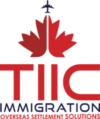
January 22, 2024—Ottawa
International students are pivotal in enhancing our communities and are essential to Canada’s social, cultural, and economic structure. Nevertheless, the integrity of the international student system has faced challenges in recent years. Certain institutions have notably increased their enrolment to bolster finances, resulting in a rise in students arriving without sufficient support. The swift influx of international students also strains resources such as housing and healthcare. To protect international students and foster sustainable population growth, the government is taking steps to stabilize their numbers in Canada.
Today, The Honourable Marc Miller, Minister of Immigration, Refugees, and Citizenship, announced that the Government of Canada will implement an intake cap on international student permit applications to stabilize new growth for a duration of two years. For the year 2024, the cap is anticipated to lead to around 360,000 approved study permits, marking a 35% reduction from 2023. In the interest of fairness, individual provincial and territorial caps have been established, proportionate to population size, resulting in more substantial decreases in provinces experiencing the most unsustainable growth in their international student population. The cap excludes study permit renewals, individuals pursuing master’s and doctoral degrees, as well as elementary and secondary education. Current study permit holders will remain unaffected by these changes.
The IRCC will distribute a segment of the cap to each province and territory, which will subsequently allocate the portion among their designated learning institutions. To enforce the cap, effective January 22, 2024, every study permit application sent to the IRCC will necessitate an attestation letter from a province or territory. Provinces and territories are anticipated to establish a protocol for issuing these attestation letters to students no later than March 31, 2024.
These interim measures will remain effective for a duration of two years, with a re-evaluation of the number of new study permit applications accepted in 2025 scheduled at the year’s end. Throughout this timeframe, the Government of Canada will persist in collaborating with provinces, territories, designated learning institutions, and national education stakeholders to chart a sustainable course for international students. This includes finalizing a recognized institution framework, establishing enduring sustainable levels of international students, and ensuring that post-secondary institutions can furnish adequate student housing.
In order to better align the Post-Graduation Work Permit Program, we are revising the eligibility criteria:- Commencing September 1, 2024, international students embarking on a study program integrated into a curriculum licensing arrangement will cease to qualify for a post-graduation work permit upon completing their studies. Within curriculum licensing agreements, students attend a private college authorized to deliver the curriculum of an affiliated public college. These programs have experienced substantial growth in attracting international students lately. However, they have lower levels of oversight compared to public colleges, serving as a loophole concerning post-graduation work permit eligibility.
- Soon, graduates of master’s degree programs will qualify to apply for a 3-year work permit. Presently, the duration of a post-graduation work permit is determined solely by the length of an individual’s study program. This restriction hampers master’s graduates, as it limits their opportunity to acquire work experience and potentially pursue permanent residence.
In the upcoming weeks, open work permits will exclusively be accessible to spouses of international students enrolled in master’s and doctoral programs. However, spouses of international students in other levels of study, such as undergraduate and college programs, will no longer qualify for these permits.
The significant measures revealed today complement other recently introduced reforms to the International Student Program. Collectively, they strive to ensure that authentic students receive the necessary support and resources for a fulfilling study journey in Canada. Simultaneously, these actions aim to stabilize the overall influx of students and alleviate strains on housing, healthcare, and other essential services in the country.
Quotes “International students are vital to Canada and enrich our communities. As such, we have an obligation to ensure that they have access to the resources they need for an enriching academic experience. In Canada, today, this isn’t always the case. Today, we are announcing additional measures to protect a system that has become so lucrative that it has opened a path for its abuse. Enough is enough. Through the decisive measures announced today, we are striking the right balance for Canada and ensuring the integrity of our immigration system while setting students up for the success they hope for.”
– The Honourable Marc Miller, Minister of Immigration, Refugees and Citizenship









